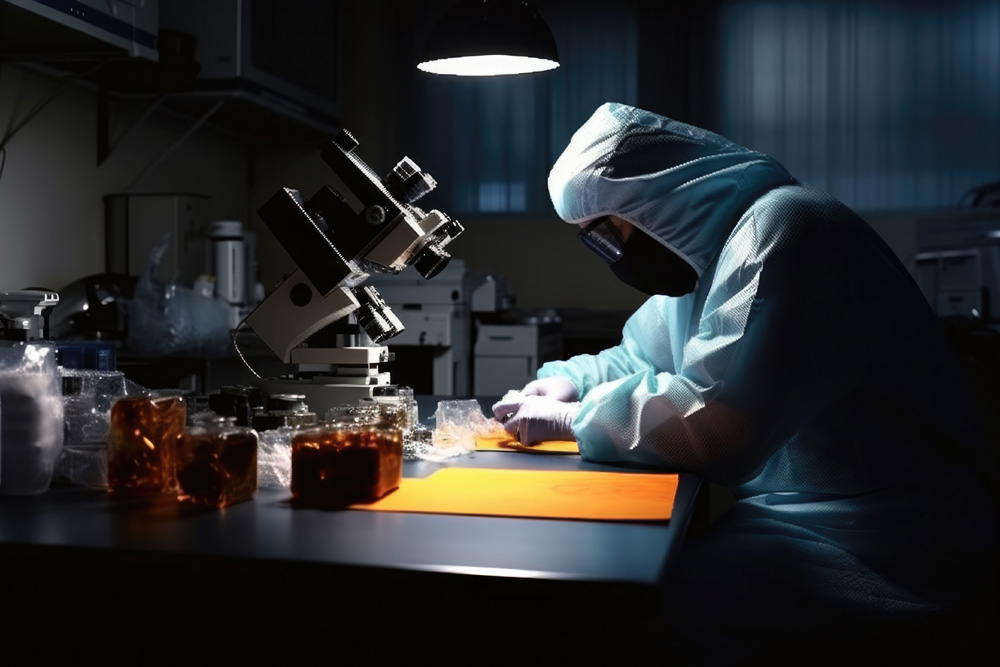
How Is Forensic Evidence Used in Criminal Trials?
In today’s criminal justice system, forensic evidence plays a pivotal role in the courtroom, often swaying the outcome of trials. For those who find themselves navigating the complexities of a criminal trial, understanding the impact of forensic evidence can be crucial. It offers objective insights that can either prove guilt or establish innocence. Fighter Law, with our deep expertise in criminal defense in Florida, recognizes the critical nature of such evidence and its potential to shape legal proceedings.
Forensic evidence, with its scientific basis, provides a reliable foundation in trials, offering insights beyond what is visible to the naked eye. Our team at Fighter Law is well-versed in handling cases where forensic evidence is pivotal. We understand its nuances and how it can influence a trial’s direction, ensuring that our clients receive knowledgeable and thorough representation.
Understanding the Basics of Forensic Evidence
Forensic evidence encompasses a wide range of scientific techniques and methods used to investigate crimes and evaluate evidence. At its core, it involves the application of scientific principles to analyze physical evidence from crime scenes. This evidence can include fingerprints, DNA samples, bloodstains, and even digital data. Each type of evidence undergoes meticulous examination in a laboratory setting to extract valuable information relevant to the case.
One key aspect of forensic evidence is its objectivity. Unlike eyewitness accounts, which can be influenced by personal biases or faulty memories, forensic evidence provides concrete, scientific data. Another important factor is the evolving nature of forensic science. As technology advances, new methods are developed, enhancing the accuracy and scope of forensic analyses.
Forensic Evidence in Action: Real-World Applications
In criminal trials, forensic evidence is often a linchpin, significantly influencing the jury’s perception and decision. For instance, DNA evidence, one of the most well-known forms of forensic evidence, can link a suspect to a crime scene with a high degree of accuracy. This has been pivotal in both convicting the guilty and exonerating the wrongly accused.
Another area where forensic evidence is crucial is in the analysis of digital data. In an increasingly digital world, evidence from computers, smartphones, and other electronic devices can provide crucial insights into a suspect’s actions and intentions. Our legal team at Fighter Law is adept at navigating the intricacies of digital forensics, ensuring that all relevant evidence is thoroughly examined and presented effectively in court.
The reliability of forensic evidence, however, also depends on the proper collection and handling of evidence. Mishandling or contamination can compromise the integrity of the evidence, leading to inaccurate conclusions. This is where the expertise of a skilled legal team becomes indispensable, as they ensure that evidence is handled correctly and that any issues with evidence collection are brought to light.
Forensic Evidence and Its Legal Implications
The impact of forensic evidence extends beyond the courtroom. It can influence the entire trajectory of a criminal case, from investigation to verdict. Properly utilized, it can provide a clear pathway to justice, aiding in the conviction of the guilty while protecting the innocent from wrongful prosecution.
However, the interpretation of forensic evidence is not always straightforward. It requires a deep understanding of both the scientific principles involved and the legal context in which the evidence is presented. This is where the expertise of legal professionals like those at Fighter Law becomes invaluable. Our team’s knowledge of forensic science, combined with our legal acumen, allows us to interpret and present forensic evidence in the most effective way possible.
In some cases, forensic evidence can also open the door to appeals or retrials, particularly when new evidence comes to light or when existing evidence is reexamined with advanced techniques. This dynamic nature of forensic science means that legal cases are not always as cut-and-dried as they might initially appear.
Why Choose Fighter Law for Handling Forensic Evidence in Your Case?
When facing a criminal trial where forensic evidence plays a key role, having a knowledgeable and experienced legal team on your side is crucial. Fighter Law, led by Thomas Fighter, a board-certified attorney in criminal trial law, brings a wealth of expertise and experience in handling cases involving complex forensic evidence. Our understanding of the intricacies of forensic science, combined with our commitment to aggressive and effective legal representation, makes us a formidable ally in the courtroom.
Choosing Fighter Law means opting for a team that not only understands the science behind the evidence but also knows how to leverage it effectively to protect your rights and interests. We navigate the legal landscape with precision, ensuring that every piece of evidence is thoroughly analyzed and presented in the most compelling manner. Get in touch with us today by calling us at (407) 344-4837 or filling out our contact form.
Share:
free case evaluation
Fill out the form below for an free evaluation of your case.
Categories
- Birth Injury
- Boating Accidents
- Car Accidents
- Civil Rights
- Criminal Defense
- Cyberstalking
- Divorce
- Dog Bite Injury
- Domestic Abuse Charges
- Domestic Violence
- Drug Charges
- DUI Charges
- Family Law
- Felonies
- Fighter Law Firm
- Firearms
- Firm News
- Guardianship
- Injunction Removal
- Injunctions
- Marketing
- Personal Injury
- Repeat Violence Injunction
- Restraining Order
- Seal and Expunge
- Sex Crimes
- Slip and Fall
- Stalking Injunction
- Theft and Robbery
- Theme Park Trespasses
- Traffic tickets
- Uncategorized

